Third annual Notre Dame Religious Liberty Summit spotlights need to protect religious freedom around the world
“Freedom of religion or belief and freedom of opinion and expression are mutually reinforcing, as they allow all persons — no matter what religious belief or no belief at all, whether from minority or majority communities — to speak out against intolerance and hostility and to participate meaningfully and contribute openly and equally in society. Freedom of expression is essential for combating negative stereotypes, offering alternative views and counterpoints, and creating an environment of respect and understanding between peoples and communities.”
-Nazila Ghanea
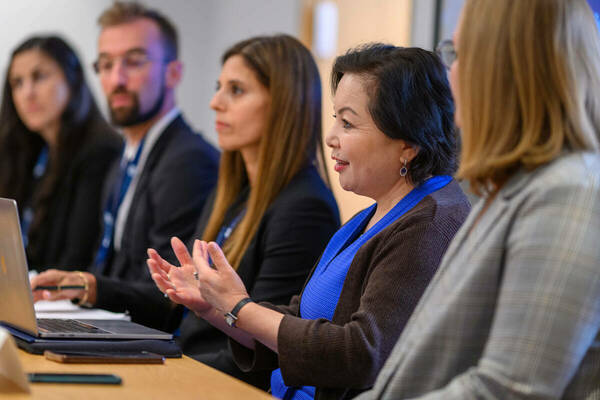
Rahima Mahmut has been unable to return to her home in northern Xinjiang, China, since moving to the United Kingdom in 2000. A member of the Uyghur community, she has spent years tirelessly calling out China's persecution and attack on the religious freedom and human rights of Uyghur Muslims, who suffer from state-organized mass imprisonment, torture, indoctrination, overcrowding, and forced sterilization, among other human rights atrocities.
In the winter of 2016, Mahmut was finally able to get in touch with her eldest brother via telephone. Her brother, still in Xinjiang, answered Mahmut in Chinese instead of their usual Arabic greeting, telling her in a trembling voice, “Please leave us in God’s hands, and we will leave you in God’s hands, too.”
That was the last conversation Mahmut had with her family.
What continues to prevail in the Xinjiang Uyghur Autonomous Region is a religious and cultural genocide launched against Uyghur Muslims. The Uyghurs are exposed to “re-education,” a euphemism for the systematic brainwashing, brute force, and abusive conditions hidden within the blanket term. The Uyghur people have been branded by the Chinese government as Muslim terrorists, their Islamic identity and faith portrayed as a virus and mental illness.
Mahmut recounted this personal story during the third annual Notre Dame Religious Liberty Summit, held July 11-13 in London. She was one of several panelists who offered deep insights into complex global religious liberty issues.
Since its inception in 2020, Notre Dame Law School’s Religious Liberty Initiative has made an active and conscious effort to promote, protect, and defend religious freedom for all people, regardless of their faith background, all around the world.
The Notre Dame Religious Liberty Summit is an annual gathering of the world’s leading experts about law and religion issues, bringing together scholars, advocates, government officials, and faith leaders for engaging and enriching conversations about the future of religious freedom.
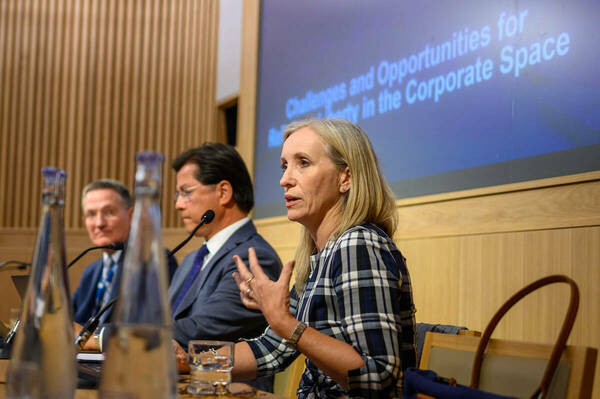
The three days of the summit in London featured more than 60 speakers who participated in 14 panel discussions on topics such as the rise of persecution against religious minorities, new threats to religious cultural heritage and sacred sites, and rebuilding faith communities after COVID.
Each panel reflected a diversity of people and viewpoints, with panelists from the United Kingdom, United States, Spain, Chile, Brazil, France, Ireland, Greece, Armenia, China, Lebanon, Nigeria, and Canada.
The lineup of speakers at the summit also represented several faith communities, including members of the Church of Jesus Christ of Latter-day Saints, Hopi and Havasupai tribes, Coptic Orthodox Church, Bruderhof, Sikh, Jewish, Muslim, and Roman Catholic faith traditions.
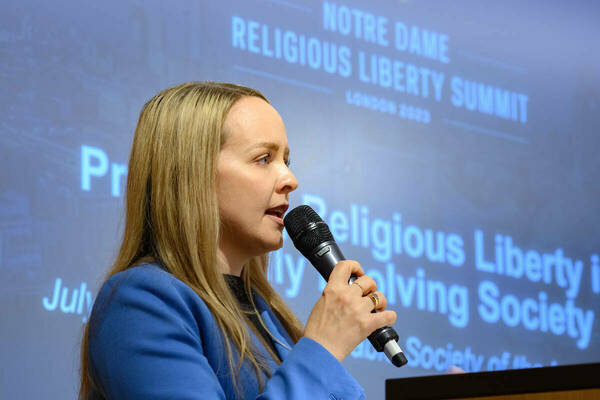
In her welcome remarks in London, Professor Stephanie Barclay, faculty director of Notre Dame Law School’s Religious Liberty Initiative, introduced the theme of the 2023 Notre Dame Religious Liberty Summit, “Protecting Religious Liberty in a Rapidly Evolving Society.”
“This year’s summit addresses a wide variety of pressing issues related to freedom of religion or belief, from both an ecumenical perspective and within an academic paradigm,” Barclay said. “While some religious liberty issues are the same, there are new challenges, threats, and contexts to consider, such as social media and trends in the corporate space.”
“This fight for religious freedom is a global fight and it requires global resources,” said Dean G. Marcus Cole, founder of the Notre Dame Law School Religious Liberty Initiative. “The University of Notre Dame is proud that we have a footprint that reaches and spans the globe. And so we have a platform from which we can conduct this fight for religious freedom.”
Throughout the summit, the panelists and keynote speakers explored the intricacies of religious freedom and expression and First Amendment protections in a variety of contexts, such as in business, law, social media, government, education, and religious cultural heritage.
For Perla Khattar, a doctoral candidate at Notre Dame Law School and fellow at the Kellogg Institute for International Studies, the summit provided a platform for her to raise awareness of religious liberty issues taking place in her home country, Lebanon.
“It is quite sad to think that Lebanon went from co-drafting the Universal Declaration of Human Rights to segregating people based on their faith,” she said.
Khattar served as a panelist in the discussion, “Living up to Our FoRB International Commitments,” in which she and her fellow panelists addressed several themes pertaining to the freedom of religion or belief (FoRB), including whether the acronym ‘FoRB’ is useful, failures to live up to our FoRB commitments, best practices, and ambitions for the future in terms of advancing religious freedom on a global scale.
“I became passionate about promoting religious liberty due to my personal lived experience growing up in the Middle East,” she said. “As a religious minority myself, I witnessed firsthand the consequences of having one's freedom curtailed and saw the importance of advocating for the rights of individuals to practice their faith without fear of persecution or discrimination. My involvement in the area of religious liberty stemmed from a deep sense of empathy and a desire to ensure that everyone, regardless of their beliefs or non-belief, can enjoy the fundamental human right to religious freedom.”
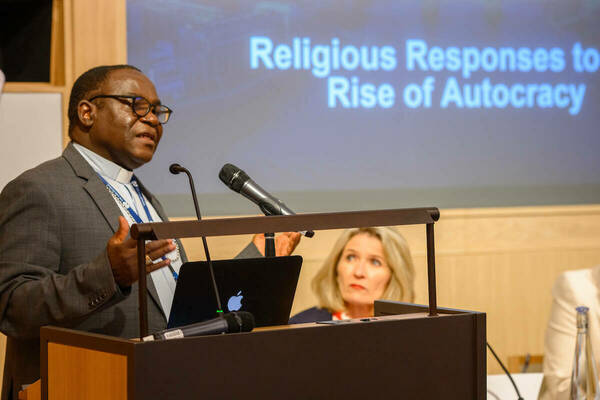
Bishop Matthew Hassan Kukah of the Catholic Diocese of Sokoto, Nigeria, spoke on the panel discussion for “Religious Responses to the Rise of Autocracy.” He provided his perspectives on developing democracy in order to see measurable social and economic changes, as well as to pave avenues for the poor and young people to practice their faith.
Kukah has been actively addressing and strongly condemning Nigeria’s atrocious anti-Christian persecution. The acts of violence, motivated by religious hatred, include incidents of kidnapping, mob killings, child labor, human trafficking, and marginalization disproportionately aimed at the Christian community in Nigeria. In the midst of rising violent extremism and human rights abuses in the country, the Nigerian government has demonstrated complacency of such atrocities against Nigerian Christians.
In addition, the summit included keynote addresses by Nazila Ghanea, professor of international human rights law at the University of Oxford and special rapporteur on freedom of religion or belief with the Office of the United Nations High Commissioner for Human Rights, and Fiona Bruce, the UK Prime Minister’s special envoy for freedom of religion or belief.
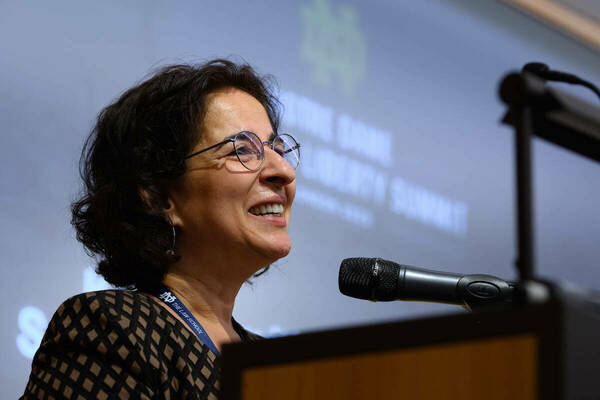
Ghanea spoke about the limitations of her mandate and unpacked the meaning of Article 18 of the Universal Declaration of Human Rights, which states that we all have the right to our own beliefs, to have a religion, have no religion, or to change it.
Her keynote centered on human rights issues and their implications and negative effects on certain communities whose access to the law has been trampled on. Like Mahmut, she addressed that one of the most pressing human rights issues is the inability of some individuals to communicate with their family members.
Ghanea concluded with a call to action, urging the summit’s participants to be more proactively involved in addressing human rights issues and expressing that freedom of religion or belief should be a priority to the human rights community at large.
Bruce delivered the closing keynote address on the second day of the summit. She shared her practical experiences and reflections from her role as chair of the International Religious Freedom or Belief Alliance. She highlighted that violence motivated by religious bias has become all too common and continues to increase across the world, so we need to be bolder and braver to challenge such violations.
“They need not just our voices, but our partnership. Not just our words, but our actions. Not just our good will, but our good deeds,” she said.
Bruce also called attention to the need for more collaboration. She encouraged the summit’s participants to collaborate with individuals whose work centers on countering violence against women and providing international aid. Moreover, she advocated for more engagement with religious leaders who are influential in peacebuilding, as they also play a significant and proactive role in furthering interfaith dialogue and protection of freedom of religion for all people.
“Collective voices of all of us are stronger than our individual voices alone. … All of us who work on FoRB don’t have the same beliefs, but we believe that everyone should have their own beliefs, to have a religion, have no religion, or to convert religions,” she said.
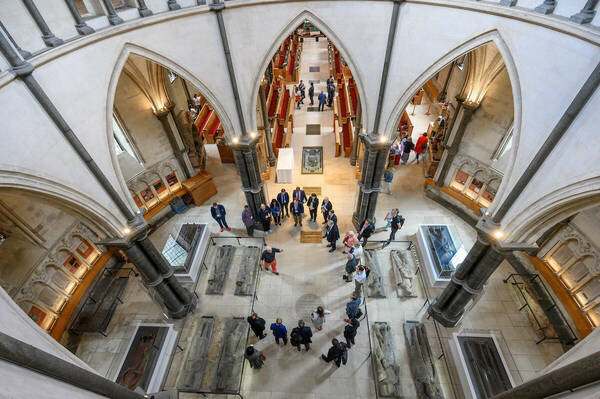
Following the academic programming, the summit participants had opportunities to partake in cultural excursions in the evenings, such as a traditional Evensong service and private free-flow tour of Westminster Abbey; reception at the Supreme Court of the United Kingdom; and dinner boat cruise on the River Thames. The boat cruise passed by a number of religiously affiliated landmarks, including the Tower of London, St Bride's Church on Fleet Street, Cleopatra’s Needle, Southwark Cathedral, and the London Peace Pagoda.
The gala and award dinner on Thursday evening served as the summit’s culminating event, where the 2023 Notre Dame Prize for Religious Liberty was presented to Lord David Alton of Liverpool, a member of the House of Lords of the United Kingdom.
In addition to the 2023 Notre Dame Prize for Religious Liberty, the 2023 Religious Liberty Scholarship Award was presented to John E. Coons, professor emeritus of law at the University of California, Berkeley. Coons has focused his work as a legal scholar on advancing parental school choice, social justice, and respect for the dignity of parents — especially for families on the margins.
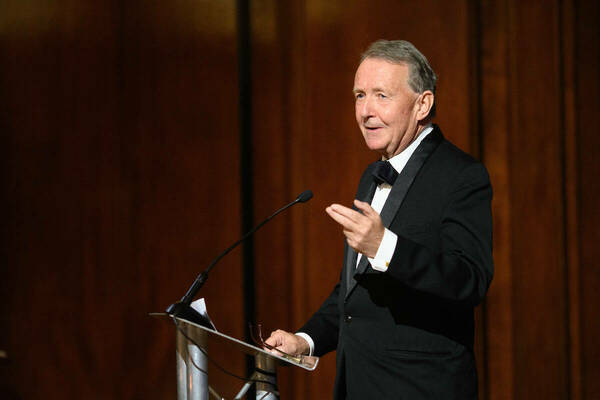
For more than four decades, Alton has been a leading international voice on issues including the environment, human rights, and religious liberty. He has used his long career in Parliament to shine a spotlight on international threats to religious freedom as well as human rights abuses and genocidal atrocities against vulnerable populations across the world.
“By guaranteeing religious freedom, we can increase international justice, stability, and peace. There is also a correlation between the most prosperous, happiest societies and those that promote religious freedoms. Religious freedom is not just nice to have. This too often neglected, orphaned right needs parents to nurture, uphold, and encourage its growth,” Alton said in his acceptance speech.
“The goal must be to achieve religious freedom for everyone, everywhere, whoever they may be. Why? Because we each have an inalienable right, flowing from our nature as human beings, to believe in religious truths or, uncoerced, not to do so,” he concluded.
Originally published by at religiousliberty.nd.edu on July 24, 2023.